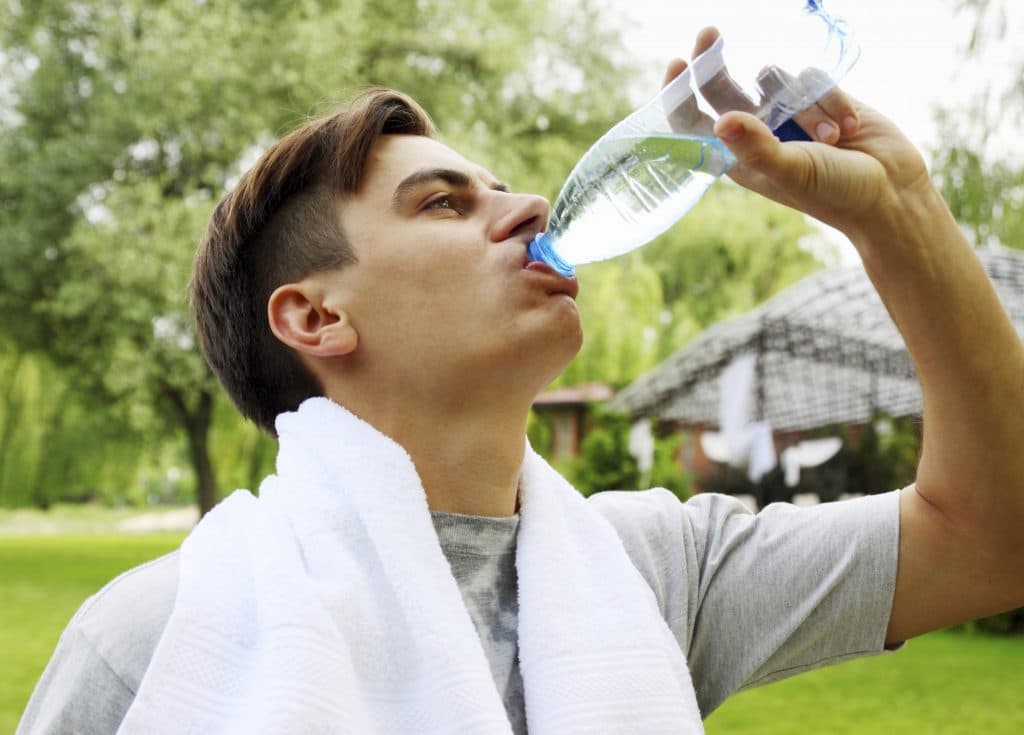You’ve been outside all day enjoying the warm weather, when suddenly you realize your mouth is dry, your head hurts and you feel tired and lightheaded. Chances are you’re dehydrated – meaning you haven’t taken in enough fluids to replace those lost through perspiration. Dehydration can happen at any time of year, but it’s especially common during hot summer months when people spend more time outdoors. Here in the South, high humidity also prevents sweat from evaporating – which is the body’s primary cooling mechanism. Take steps to prevent dehydration and learn to recognize the symptoms of more serious heat related illnesses. Here are some tips to help keep your family cool – and healthy – this summer.
- Keep water or other beverages with you at all times and remind active kids to drink frequently.
- Avoid alcohol, which has a diuretic effect. If you do imbibe, alternate a glass of water for each alcohol beverage you consume.
- Plan strenuous outdoor activities for early morning or late afternoon when outside temperatures are lower.
- Seek shade. Regular shade breaks not only help to prevent overheating, but also reduce your risk of sunburn.
- Take extra precautions for those most at risk – the very young, the elderly and those with chronic health conditions. They are less able to regulate their body temperatures in hot weather and may not have a normal thirst drive.
- Note urine output and color. Decreased or dark yellow urine is a clue the body is not adequately hydrated.
- Never leave children or pets alone in hot vehicles, even for a moment.
- If you think you are dehydrated, get to a cool or shady spot and drink fluids. If symptoms do not quickly start to improve, you may benefit medical care, possibly including IV fluids.
Dehydration can quickly progress to heat exhaustion and heat stroke, both of which can damage to the body’s organs and brain. People with heat exhaustion may feel faint, weak, sweat profusely, vomit or faint. Skin will be pale, cool and clammy and the pulse rapid. Get them to a cooler location, loosen clothes and apply cool, wet cloths or mist skin with water from a clean spray bottle and fan the person. Offer sips of water or sports drink. Seek medical attention.
A person who suffers more serious heatstroke will stop sweating and have hot, dry, red skin. Body temperature can exceed 103°F and confusion, seizures, loss of consciousness or even coma are possible. This is a medical emergency! Call 911 immediately and take the above steps until help arrives. Do NOT attempt to give oral fluids to an unconscious victim.
Stay cool, stay hydrated and enjoy your summer!

